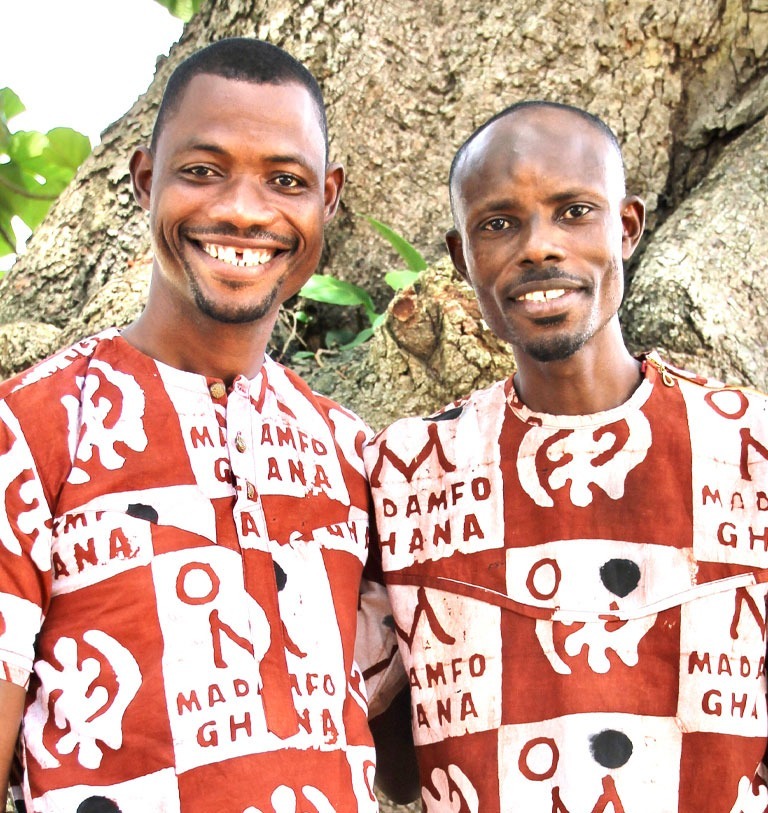About Victor Manu
Project development and management in Ghana
Victor Manu was born in the Brong Ahafo region and is 43 years old. He is a visionary of development cooperation.
He studied civil engineering in Kwahu and met Bettina Manu-Landgrafe in 2002 in the Ashanti region at Lake Bosomtwi, where he was working on a project.
Together with Emmanuel Stephenson, who unfortunately passed away three years ago, Victor is a founding member of the Madamfo Ghana Foundation in Ghana.
Victor is the responsible CEO and project manager of the Madamfo Ghana Foundation (Ghanaian branch of Madamfo Ghana e.V.).
Together with his Deputy CEO, Enock Sunday Attipoe, Victor reviews the project applications, we receive from the village communities.
We always adhere to our guideline “Helping people to help themselves” and develop the project plan, up to project implementation as follows:
- The idea for the project is always developed by the target group of the project.
- This target group, e.g. a village in need of a borehole, then submits an application, e.g. by visiting our project manager, or a formal letter expressing the concern.
- At a community meeting with all stakeholders of the project, the request is discussed, debated, developed and a committee is formed. -> This step in the project implementation is of great importance! Only with the involvement and participation of all parties involved, the hearing of the villagers at the meeting and their participation, as well as ownership, a project can be carried out successfully in the long term and improve the lives of all in a sustainable way.
- We then coordinate the project with the responsible government authorities.
a) The DCE (District Chief Executive) is the head of a district and in Ghana and is appointed directly by the president. He can make reliable commitments and take decisions. He serves as a liaison, e.g. to the regional minister and coordinates the necessary permits or personnel requirements.
b) The District Assembly is the political and administrative authority of the districts. The main function of the District Assembly is to promote local economic development or to initiate programs for the development of basic infrastructure, as well as to provide community work and services in the district.
In this way we coordinate our projects with the government’s planning, in order to achieve the maximum impact of the donation. - The implementation of the projects consists of 2 pillars.
a) The team of Madamfo Ghana develops the construction plan, e.g. for a school, provides the skilled workers and organizes the logistics around the construction site.
b) The village provides the “communal labor” (community work) and is instructed by our skilled workers. For example, the community clears the building site, brings water to the construction site, provides workers and much more. -> As discussed in point III., this cooperation is essential for the success and acceptance of the project and is one of our core competences! - The inauguration of the project by the village community and its Chief, representatives of the District Assembly, local authorities, such as the health or education authorities and the team of Madamfo Ghana, is the highlight and a decisive moment in the implementation of the project. Especially psychologically, the inauguration decides how the villagers accept “their project”.
- The aftercare is provided by the committee formed under Step III.In general:
- After completion of the projects the Ghanaian state provides the personnel for kindergartens, schools and clinics.
- For projects such as toilet facilities and water projects, which are handed over to the village community after completion, the village independently forms a committee which is responsible for maintenance.
Only through this interrelated measures and steps sustainable development cooperation is possible!

Victor Manu (left), with his deputy Enock Sunday Attipoe


